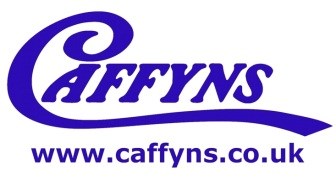COVID-19 and the EU’s new RDE CO2 emission regulations were cited as the “key events” which resulted in a 5.4% decline in revenues in Caffyns’ 2020 annual financial results.
The Eastbourne-based AM100 PLC delivered a turnover of £197.9 million (2019: £209.2m) and underling profit before tax down 82.6% to £251,000 (2019: £1.45m) during the period as March’s stalled trading period and ongoing new vehicle supply issues took their toll.
in a H1 trading update published back in November Caffyns blamed the impact of new RDE emissions regulations on new vehicle supplies to its Volkswagen and Audi dealerships for a 92% year-on-year slump in profits.
During the reported period to March 31, 2020, the group’s new car sales declined by 11% as used car sales slipped by 1.4%, on a like-for-like basis.
Aftersales revenues remained unchanged against 2019, meanwhile, with service revenues up by 2.4% on a like-for-like basis as parts revenues declined by 1.3%.
Caffyns chief executive, Simon Caffyn, praised the efforts of the group’s staff during the trading period and suggested that a strong re-start to trading, following June 1’s re-opening of showrooms in England, had delivered cause for optimism.
“The year under review was defined by two key events: the COVID-19 pandemic in March 2020 and the further implementation of the emissions-testing regime, Real Driving Emissions, in September 2019,” he said in a statement issued via the London Stock Exchange today (July 17).
“In the light of these two events, the board reports a reduced underlying profit before tax for the year of £0.25 million.
He added: “The response from our employees to the COVID-19 crisis has been outstanding. Due to their efforts we experienced a strong trading performance in June as the businesses began to fully re-open.”
COVID-19 mitigation
Caffyns made use of the Government's Coronavirus Job Retention Scheme (CJRS), with approximately 80% of the employees furloughed in April 2020.
It implemented an annual salary ceiling of £37,500 for all active employees, meanwhile, including its executive directors and chairman, for the month of April.
Non-executive directors of the Company also agreed a significant reduction to their fees.
The group said that the salary reductions had been unwound in stages, with non-furloughed employees (except for full time executive directors) returning to 80% of their contractual salary from May 1.
Dealership performance
Caffyns said that its Volvo franchise in Eastbourne had “traded profitably in the year”, adding that it had been “delighted” to extend the group’s representation with the Swedish premium car in Worthing, West Sussex.
The new business’s opening had to be delayed until after the reported period, however, due to the COVID-19 lockdown period.
Caffyns said that its Tunbridge Wells Seat business had continued to perform well, but said that the adjacent Skoda business had proved “more challenging”.
Its Skoda franchise in Ashford performed satisfactorily, while its Audi and Volkswagen businesses both suffered materially from the impact of the COVID-19 and RDE.
While the Ashford Vauxhall franchise also suffered challenges as the brand’s 2019 registrations declined by 26%, trading at the Caffyns Motorstore used car operation in Ashford also remained depressed.
The group said that the business had “suffered from growing pains” but insisted that the concept had been very well received by customers.
Company outlook
Caffyns said that it remained “very cautious” in light of the current challenges faced by the sector.
“We incurred substantial losses in April and May whilst the business was in an effective lockdown state although we were pleased with the levels of trading achieved in June as we reopened our showrooms,” it said, adding: “We still expect ongoing trading to take time to revert to previous levels.”
The group said that its enjoyed supportive relationships with our banking partners, HSBC and Volkswagen Bank with available but undrawn facilities in excess of £10 million at the year-end.
It added: “The board is confident that the company has sufficient liquidity to allow it to effectively navigate the post-lockdown period and to capitalise on the trading opportunities which are expected to arise as markets return to more normal levels of activity.”















Login to comment
Comments
No comments have been made yet.